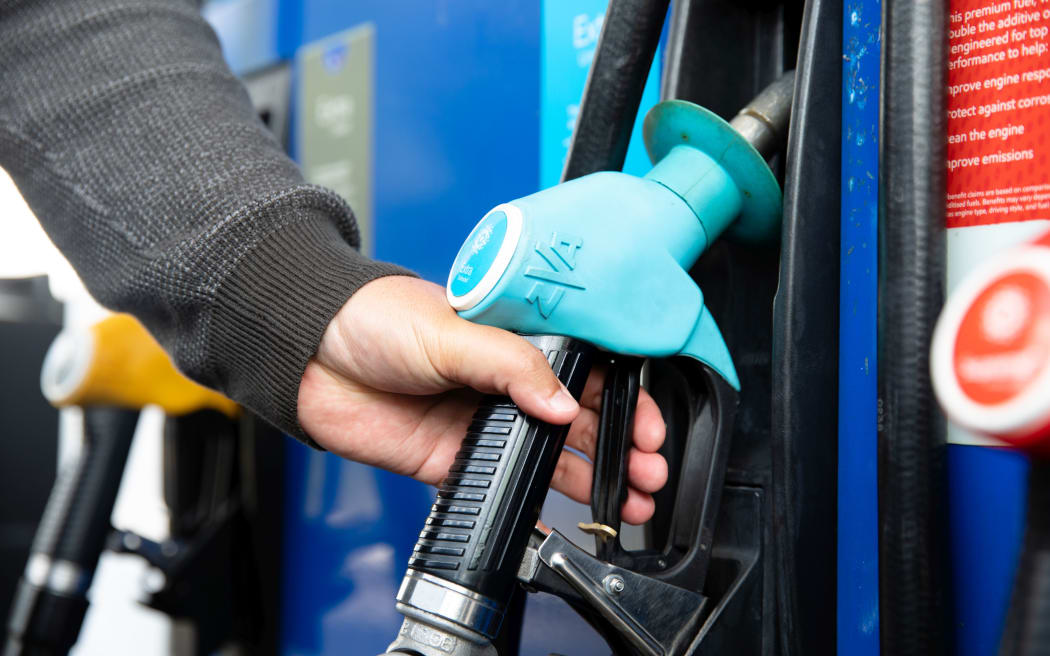Commerce and Consumer Affairs Minister Kris Faafoi says the government will act after a report confirms consumers are paying more than what would be expected in a competitive fuel market.

Photo: RNZ / Dan Cook
The Commerce Commission released its recommendations today on New Zealand's fuel market following a year-long study.
It found that New Zealand lacks an active wholesale fuel market and has recommended introducing a Terminal Gate Pricing regime, similar to that in Australia.
Read more about the Commerce Commission's findings here.
Mr Faafoi said cabinet will now look at implementing changes aimed at breaking the stranglehold the big fuel companies have on supply, and encouraging more competition.
One such change will be opening up the supply to other players.
He said when competition is introduced, prices drop.
"The example I am aware of is when Gull came to Wellsford, prices dropped by around 18c a litre. The local example here in Upper Hutt when Waitomo came to town earlier this year, they dropped their price by 32c a litre. Some 24 hours later competitors did that too.
"So I think what we are trying to do here is encourage retail market competition."

Commerce and Consumer Affairs Minister Kris Faafoi. Photo: RNZ / Dom Thomas
Mr Faafoi said legislation making the necessary changes to the market structure, along with an enforceable code of conduct, would be expedited and should be passed by next year.
"What we are trying to encourage in competition in the market, the Commerce Commission has given us a clear steer that the issue for them to ensure there is increasing competition is unlocking some of the potential in the wholesale market, so the likes of Gull, the likes of NPD can actually play a bigger role at the retail end of the spectrum."
He said the government aimed to make terminal gate pricing mandatory - creating of a spot market similar to that for electricity in New Zealand - but that existing 10-to-15 year contracts for some operators would pose impediments to change.
"That's part of the substantive change or recommendation made by the Commerce Commission. We've agreed in principle to commit to that because that's part of the package that unlocks the wholesale market to some of the smaller players.
"There are issues around some of the contracts these smaller players are locked into at the moment with some of the bigger players, which do restrict their ability to play a bigger part at the retail end. Again, we're committing to dealing with those."
The minister said when these issues were dealt with, changes in pricing should occur soon after, by the middle of next year.
ComCom report on petrol out this morning & Govt will wave their arms around as though they’re doing something about prices.
— Simon Bridges (@simonjbridges) December 4, 2019
Reality is, with an extra $1.7b in taxes this term, Govt’s the gouger. & @jacindaardern is the fleecer-in-chief.
Meanwhile, National's Transport spokesperson Chris Bishop has put the blame on the government, saying fuel taxes are putting up prices at the fuel pump.
"New Zealanders are being ripped off at the petrol pump and it's the government who is picking their pockets through all the fuel tax hikes it has introduced these past two years.
"The extra revenue it has collected from increased fuel excise, road user charges and the Auckland Regional Fuel Tax has already hit $565 million - that's $319 per household.
"Prime Minister Jacinda Ardern is the Fleecer-in-Chief. Her Government's tax grab will hit $1.7 billion once further tax hikes - already passed into law - take effect down the line.
"This stings because motorists are getting nothing in return."
Z Energy, one of New Zealand's major fuel companies, said it was broadly supportive of the proposed changes, including a move to more transparent pricing of its products, but it warned it would come at a cost.
Chief executive Mike Bennetts said it intended to act swiftly to introduce premium prices on its display boards.
"It's going to cost us $2 million a year so it's not cheap to do," he said.
Mr Bennetts said the company had not yet quantified the likely cost to the business if all of the commission's recommendations were implemented.


